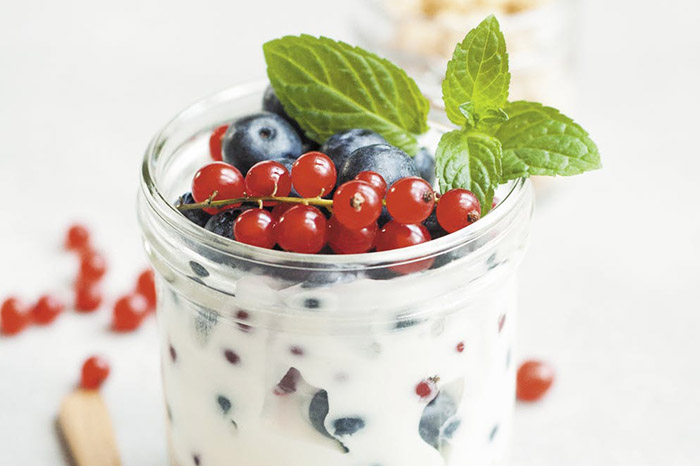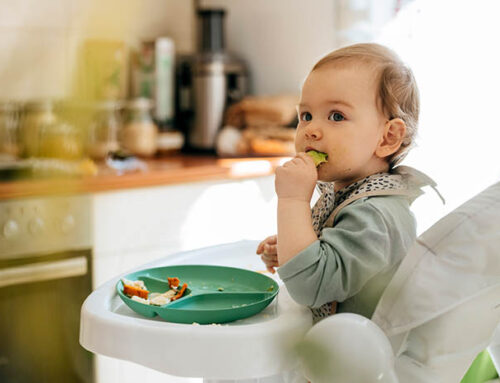I recently read a great article in Choice Magazine (October 2012) “Cereal Offender” where Choice gave a great breakdown on the Australian breakfast cereal market – finding many breakfast cereals are too high in sugar and too low in fibre, especially those marketed at kids. In fact, I was disgusted, but not surprised, to read that Choice found “73% of the 41 kids’ cereals they looked at were high in sugar”!
BUT we know that breakfast is one of the most important meals of the day, and studies show that people who eat breakfast are less likely to be overweight and are more likely to eat a healthy diet. AND, cereal has the potential to be a healthy breakfast, plus it’s quick and easy, making it easier to fit in the all-important meal in a busy day!
So how do you find an appropriate breakfast cereal for you and your family to eat?
Look for the following:
- High Fibre: ≥6g per 100g
- Low Sugar: <10g per 100g OR <20g if contains dried fruit
- What about Fat? Breakfast cereals generally aren’t high in fat, in fact a little unsaturated fat from nuts/seeds or whole oats is a good thing as these foods are low GI and make you feel fuller for longer. So look for Total Fat 5-10g if cereal contains nuts/seeds, with Saturated Fat <1/3 of Total Fat.
- Salt/Sodium: <400mg sodium per 100g
It can be surprisingly hard to find a cereal that fits these all these categories! Even ‘plain’ high fibre cereals like All Bran and Special K, pack in the sugar (13.6g and 18.5g per 100g respectively, both above the recommended 10g per 100g if no dried fruit).
Examples of cereals closet to meeting this criteria: Weetbix, All Bran, Bran Plus, Guardian, Shredded Wheat, Vogel’s Ultra Bran Soy and Linseed, Vitabrits, Oatbrits, Goodness Superfoods Heart 1st (not to be confused with the same brand’s Protein 1st and Digestive 1st, which both are higher in sugar), Back to Nature Hi-Lo Active, Freelicious Fibre Up Flakes.
However, it did not surprise me to find that several cereals that boast ‘healthy’ or high fibre titles, while being high in fibre, are frequently high in sugar and/or salt (sodium) e.g. ‘Natures Path Organic Spelt’ sounds harmless enough, but has 500mg sodium per 100g! ‘HealthWise for Heart Wellbeing’ has 30.1g sugar per 100g (although some of this will come from dried fruit).
In fact, as soon as cereal contains fruit, the sugar content skyrockets, but it’s not all due to the fruit content. When choosing a breakfast cereal it’s a good idea to read the ingredients list to look for hidden sugars: other names for sugar in the ingredient list include: Sucrose, Maltose, Lactose, Dextrose, Fructose, Glucose, Molasses, Treacle, Malt extract, Raw or brown sugar, Cane sugar, Castor sugar, Syrup, Disaccharides, Monosaccharide, Polysaccharide, Honey, Invert sugar. Ingredients are listed from largest to smallest quantity, so if any of these names for sugar are close to the top of the ingredient list, then they are likely to be in large quantities in that cereal.
So what are the Best Choices: You can’t go past Rolled Oats (i.e. porridge) and home-made muesli as nutritious breakfast cereals that tick all the boxes: Rolled oats has just 1.1g Sugar and 3mg Sodium per 100g and a good source of fibre with 12.3g per 100g. Even if you were to add a tsp of honey or sugar to sweeten your porridge it would not go near the amount of sugar in most commercial cereals (although I recommend adding fresh fruit like banana or a small amount of dried fruit instead of sugar). Making your own muesli with lots of nuts and seeds and serving this with fresh fruit is also a very nutritious breakfast. The energy content of nuts is high, so go easy on the portion of muesli.
What about commercial muesli? Most are still great breakfast choices. For example, a Fruit and Nut Natural Muesli may contain 14.7g Sugar per 100g (which is <20g/100g recommended for cereal containing dried fruit), 72mg Sodium and 11g Fibre per 100g. Disappointingly though many commercial muesli still use added sugar (I can’t see why this is necessary – dried fruit is sweet enough). So look out for muesli with hidden sugars in the ingredients list (including honey). My favourite Muesli if I am not making my own (let’s be realistic, it’s much easier to just buy it), is Woolworths Macro Natural Untoasted Muesli No Added Fruit. It is packed with nuts and seeds and fibre (9.3g per 100g) and has only 1.6g Sugar and 2mg Sodium per 100g!!!!





